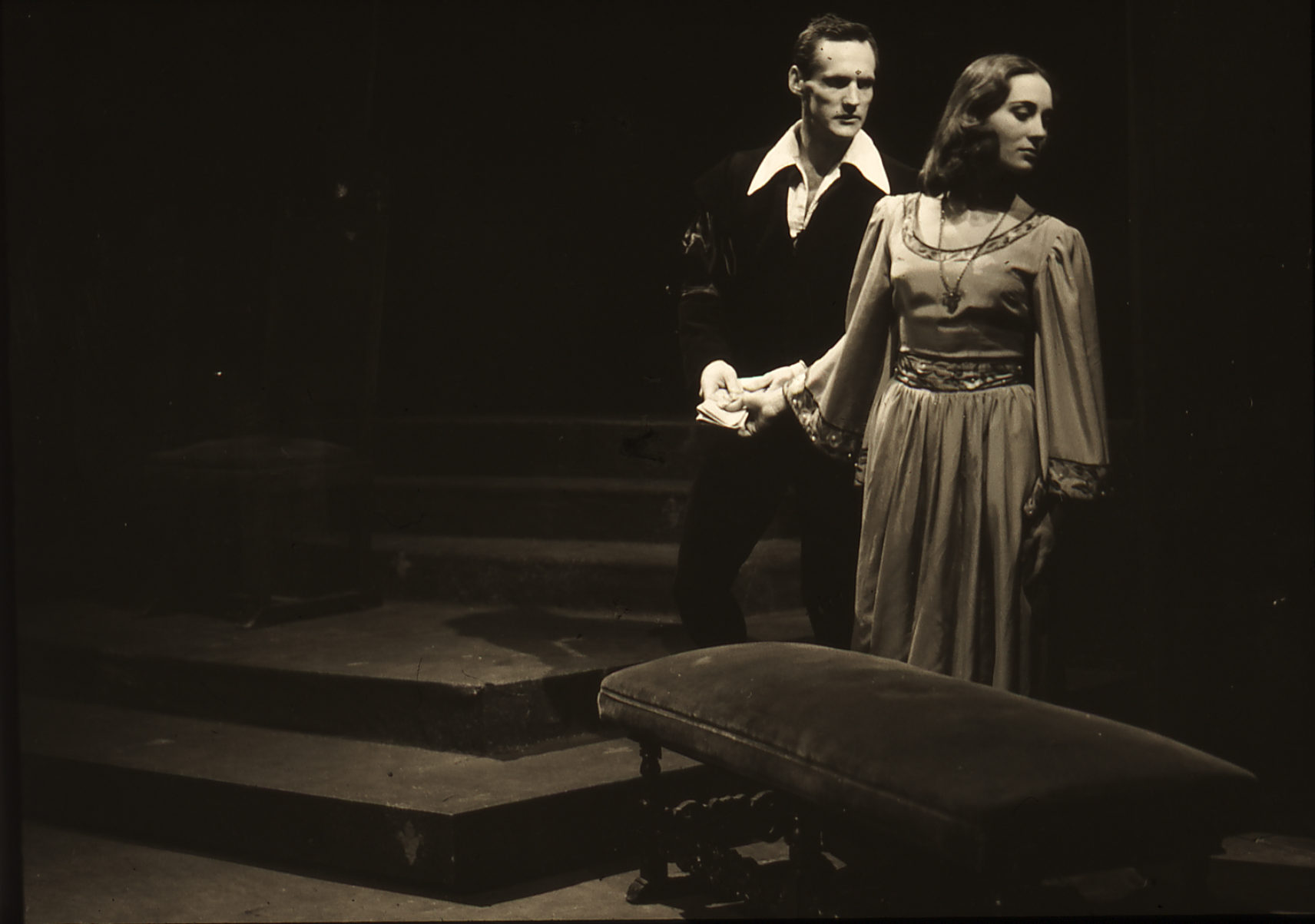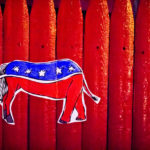“There is nothing either good or bad, but thinking makes it so.” – (Hamlet, Act II, Scene II)
It is all about interpretation, one thing can be good or bad or both, says Hamlet. In this act, this scene, this line, Hamlet appears unhinged to both the world of the play and to the audience; he has been running about the castle speaking riddles and seeming nonsense. Whether Hamlet is really losing his mind or faking lunacy is unclear – Shakespeare invites the audience to decide. The line transcends itself. A play on its literal meaning, it invites the audience to question the authenticity of Hamlet as well as the meaning of the very line itself.
The ambiguity, the insistence on interpretation, and the self-consciousness of the line exemplifies one of the defining characteristics of his work, the multiplicity of Shakespeare.
This year marks the 400th anniversary of his death, four centuries in which new generations, cultures, and languages have reimagined and kept his work alive in fine art, literature, pop music, and on screen. References to his work are incalculable but have likely appeared in as many languages and corners of the globe as the texts of the world’s major religions.
In the last half-century, productions of Shakespeare have increasingly tackled, questioned and undermined gender, race, politics, cultural traditions, and language. In 2013 in Brooklyn, New York, two productions of Julius Caesar demonstrated the depths and range that a single play could be taken; on one stage was Gregory Doran’s all-black cast set in contemporary Africa, on the other was Phyllida Lloyd’s all-female cast set in a penitentiary. The breadth of Shakespeare is undoubted.
Michael Sexton, the director of The New York Shakespeare Society, shared with us thoughts on why Shakespeare is as relevant today as ever.
Michael Sexton: It is a really complicated question. The standard answers are that he was an early and maybe the most influential psychologist in literature, that is, he proved interested in character and motivation and the complexities of personal motivation to a degree that was all but unprecedented at the time. And in terms of its effectiveness, and the wide range of characters he investigates and represents, is still pretty unparalleled.
Because of the wide range and depth to which he is able to plumb, the work is singular and, at least in the history of literature, epoch-making. People talk about his universality, I would say it is because of the multiplicity of characters and motivations that he is able to represent on stage that lead to his appeal, that are part of his broader, global, international appeal. The experience of watching some of his better plays is like watching aspects of ourselves, that is part of the answer.
While he uses language effectively, it is not only that. He does a great job of delving into the internal psychology of these people; you are watching internal characterological change which is still really rare and difficult to do, especially within the form that he worked, that is drama – by which I include film, television, etcetera.
L.S. A lot of academic literature and theatre productions in the past few decades have focused on Shakespeare and gender. How has Shakespeare revealed and challenged gender norms?
M.S. One of the sources of change in his plays, and life, is eros [Greek n.desire]. Whom a character is desiring at any given time and whom one is sort of hopelessly attracted to, in love with, infatuated with causes internal strife and internal change.
So you watch, say, in Measure For Measure, the previously puritanical Angelo start to desire and corruptly plot to obtain the sexual favors of a woman who has come to him for help. You hear him in soliloquy asking himself, who is he? He is not recognizing himself. It’s an internal interrogation, not of the world or of God, but of oneself. That’s an often erotically inspired moment. Sex is a place where we identify ourselves, it is one of the places we go to find who we are – if that worries us or disturbs us then it can be a highly charged and highly interesting moment to watch.
Also, who we are attracted to is never up to you in Shakespeare. All love in all the plays is love at first sight. It is a funny, seemingly conventional thing, but it speaks to the involuntary and capricious nature of our sexual and gender identities. Who we love is never up to us, up to our will, it is something that centrally defines us but which we have no choice and no control over.
In a play like Twelfth Night, you have a female character who, for whatever reason, decides to hide inside of a male identity and falls immediately in love with Duke Orsino. Because she is hidden in this male identity, she is sort of able to percolate, ruminate, and torture herself. Because she recedes [into the male identity] she is then able to have some deep conversations with him about desire… Because she is inside this gender fluid moment, her and the audience and the ignorant love, Duke Orsino, are given some space and time to think about difficult issues of desire, about who we are and whom we love.
We want to define identity by going to this very unstable place, that is, the people we love and desire, asking, how can we define and find a place for ourselves with all these moving parts of politics, gender, and more. Well, that seems to be an ongoing human problem; it’s an internal dynamism, we change all the time and it extends beyond the personal into the social.
L.S. Let’s talk about Shakespeare on the global stage, both how his work came to be so globally dominant and where it is flourishing today. It is a cliché question, but to what extent have we made Shakespeare a mirror, and to what extent does the work itself deserve its esteemed place in the global canon?
M.S. There are certain accidents of history and imperialism that have helped make him the universal artist that he is. The British Empire, well, became the British Empire, and that certainly helped him build a global appeal.
Professor Jonathan Bates posed the question, is there any other dramatist in the history of the world that might have been Shakespeare if things hadn’t gone the way they did? If the Spanish Armada had won, maybe Lope de Vega would have been the other Shakespeare, he wrote about 100 plays of similar complexity. But it is not just an accident of military history, it is because Shakespeare was writing in a popular art form, not just a literary art form. That has something to do with his wide appeal and continues to have something to do with it.
I do think it is, in part, his alertness to the way in which we use literature as a mirror and a tool, that it has multiple functions and possibilities. He is an artist who is overtly interested in multi-interpretations of his work. The work invites you to lean in a little bit. Famously he holds back some information and makes character motivations mysterious. There are famous things that his characters do that defy easy answer. I think that is a deliberate move, to keep something from settling down and therefore open to interpretation. It is something that all great artists do.
So, it seems that wherever Shakespeare goes, interpretation is sure to follow. One such form is translation. Whether it is Kurosawa’s loose adaptation of Macbeth to Japanese Shogun era, or a conventional translation and rendering of a play in Russian, Shakespeare has come to serve as a sort of global literary currency.
Shakespeare’s journey in Korea began with a 1909 production of Hamlet, this time arriving via colonial powers other than the British Empire. Japanese colonialists staged the play in Japanese and only for Japanese families. Hamlet and other works would eventually come to be translated into Korean as history and politics dictated.
Today, his complete works and several hundred books of analysis are in circulation. Plays are regularly staged and have inspired popular Korean dramas. In 2006, Korean Yohangza Company brought A Midsummer Night’s Dream to the Barbican Theatre in London. After a four-century long journey, the play returned home much older and all the wiser, wrapped in monk robes and the pounding of traditional Korean drums.
Here’s to 400 more years with all the Shakespeares out there.
- MY City – The Planet - January 23, 2018
- 70 Years of Two Koreas: The ’47 UN Vote For Elections - January 16, 2018
- Trade or No Trade: China’s DPRK Dilemma - June 5, 2017






